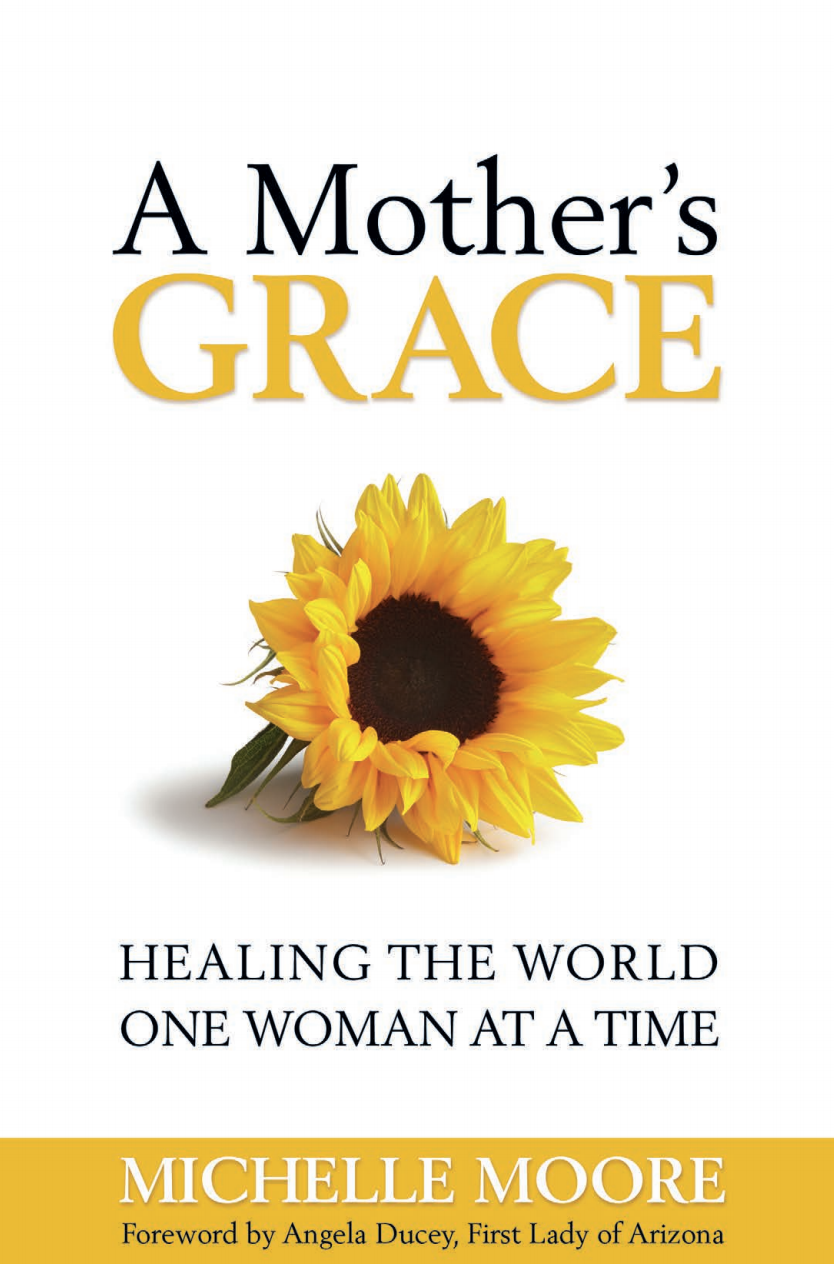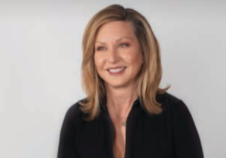In 2008, as part of what I will now declare to be my “midlife crisis,” I decided to celebrate my forty-second birthday by being a slave to vanity, like some women I know, by arranging for a breast lift. While I had never considered plastic surgery, this became a present to myself, after four pregnancies and nursing three children. As part of the preparation process, the nurse inquired about my last mammogram. Though I had taken one within the last two years and had her assurance that it was fine, something in my divine inner voice told me to get another one. This was typical of my family, the “let’s get this out of the way” approach.
Typically, I waited until the last minute and had the mammogram on the morning of my surgery. When I arrived at radiology, the mammography order wasn’t there, even though I was scheduled for surgery.
“I’m having surgery today and need a mammo,” I said. Magically, and quite out of the blue, a spiritual-looking Indian woman appeared from the back office. As her eyes peered deep into mine, I felt a calm that slowed me down to listen.
“I heard about your story,” she said. “I don’t have an order, so we can call the doctor but at this time of the morning he probably won’t answer.”
I was annoyed and requested that she try harder, and she did. Immediately following the test, a technician led me in to see the radiologist.
“I see some calcification here that I don’t like,” he said, “and although I don’t think it’s anything serious, I suggest that if you’re going to have surgery I would put it off for a day to make sure that everything’s okay.”
Hello? Didn’t he realize that you don’t simply reschedule a breast lift? I had been on the schedule for six months.
The results scared me, but I still wanted the damn surgery and sought out a radiologist for further testing. While she didn’t take insurance, I didn’t let that stop me since my motto was “let’s get this out of the way.” She did the biopsy of the calcification and it bled profusely, which first indicated a blood disorder. Unfortunately, malignant masses bleed, too, and the next day I received a diagnosis of cancer. WTH? For the next month, I endured MRIs and CAT scans and saw more doctors than I care to remember. I was lucky because had I not gotten the mammogram and gone ahead with the surgery, I might not have survived, since I was diagnosed with an aggressive type of breast cancer, which had developed within the span of a year. I returned to thank the beautiful Indian lady for her help, but no one knew anything about such a person.
Here’s the icing on that ironic cake: three weeks after my diagnosis, I had a double mastectomy, and as I was recovering from surgery, I noticed that my younger son did not look well. My typically ear- to-ear smiling boy was suddenly moody.
I wondered if he was simply worried about me. Once again, I kicked into “let’s get this out of the way” mode and arranged to take him immediately to the pediatrician to check his blood sugar, which I knew to do because I work in diagnostics. Within three minutes of the urine glucose screen, we were rushed to the Phoenix Children’s Hospital, where he nearly died as he hovered around ketosis and his new lifelong diagnosis of type 1 juvenile diabetes.
I was beside myself about what to do. I was about to start a year-long chemo regimen the next morning; my ten-year-old son was two hours away at a week-long basketball camp; my three-year-old was with a neighbor somewhere, bouncing off the walls; and my little seven-year-old beautiful, healthy boy was newly diagnosed with a lifelong illness that means he will have to inject a shot of insulin every time he puts something as small as a potato chip in his mouth — for the rest of his life.
Wait! What? My brain began to shut down as they told me he nearly died and would be hospitalized for at least a week while they attempted to teach us to control his blood sugar.
I prayed for someone to wake me up from this nightmare. Pinch me, kick me, do something; just get me the hell out of here fast. I couldn’t get it together and needed help, and I had nowhere to go. I called my family and my parents came immediately and everyone went into high gear to support us across the board.
The following year, I endured seventeen chemo treatments, five surgeries, and weekly appointments with five different specialists while helping my son deal with juvenile diabetes. That translated to ten pricks a day into my son’s flesh, five daily shots of insulin, trying to save him from life threatening blood sugar levels and everything else that comes with such delicate territory. The ambulance was called to our home three times that first year for my son, as I was dealing with nausea, extreme fatigue, paralyzing fear, and dangerously low white blood cell counts. All the while, we were trying to save our little boy from slipping into a diabetic coma.
It was an insane balancing act. I just wanted to lie down and disappear, but I had no choice.
None! I wanted to run away so badly and pretend that none of this was happening because it all seemed so impossible to handle. I had to suck it up and get my shit together and deal with all of it — the pain, the constant worry, the relentless physical panic, and the absolute horror that it was all on my shoulders. All of it.
I remember walking into my office and seeing months of bills and mail stacked up. I turned right around and left, unable to face it. I thought, Why is there not a place, a person, or something to come in and ease my burden?
That’s when Mother’s Grace was born.
After everything I had experienced, from age five, when my mother passed away, to my current predicament, I felt the need to help other moms who were also experiencing overwhelming life crises, such as the one I had endured and was trying to currently survive. Since I had been there and lived through it, I knew I had it in me to help others.
In the meantime, my sister and best friend came over and shaved my head, which for me was more significant than having a double mastectomy. When I looked in the mirror, I saw a very sick cancer patient.
I became a mom who dragged herself out of bed, day after day, asking the same question: “Am I dying?” I had hit rock bottom, and I knew that without faith I could not deal with the relentless day-to-day trauma.
I grew disgusted, paralyzed with fear and living in the worst parts of my head. Enough about me! I wanted to escape my own nightmare and help somebody else. I approached a couple of friends who knew my situation and my family history, and we began to raise money for mothers, like me, who basically needed a mother. I didn’t think it was possible, but in our first year we raised nearly $2,000, which was used to help mothers with groceries and gift cards for gasoline and other essentials. We also drove them where they needed to go, listened to their stories, and offered encouragement.
“Hey, I’ll come over and sit with you” became a familiar refrain. “You can talk to me” was almost our motto. I encouraged these people because I know there is grace in this endeavor we call life. I know it’s hard and that it’s a journey of love and light and we all need to constantly renew our appreciation for life. This comes through sitting and listening. It’s not only about giving money or paying bills; we never wanted our efforts to focus solely on that.
For example, we helped a single working mom who needed support for her daughter with diabetes. I’ve been there. I got it. We helped with her mortgage and with her permission, Mother’s Grace landscaped her front yard. This was the thing that made her cry. Now, she sits outside and relaxes with a glass of wine and when she arrives in the driveway at the end of the day, instead of just going into her house, she takes time to appreciate her environment.
Her reaction made me want to do more. I had no idea what I could do or how, but that didn’t stop me. As the foundation grew, I added board members with diverse expertise—an attorney, an accountant, and the First Lady of Arizona—all with different professional views who knew how to move ideas and action from point A to point B. The board of Mother’s Grace now has eleven members and counting, so if one person can’t help, another will step up — in the same way the women we help come to us. Eleven years ago, when the time came for our first big fundraiser, I was mortified, afraid to show up because I feared it would be a huge flop. But seventy people showed up and donated, and it was great, not perfect but impactful. We were on our way.
Today, Mother’s Grace provides mothers in need with housing costs, medication, meals, housekeeping, childcare, transportation, and more. We also work one-on-one to provide emotional support and mentorship for the long-term success of their household, and our fundraisers attract more than 500 women who raise nearly a half million dollars per event.
Now, through seed grants, we also mentor women who wish to start their own nonprofit organization. We are 100 percent volunteer-driven, and we have granted more than $3 million to women and their families in need, while assisting nearly 1,000 households per year.
Throughout my work launching and operating Mother’s Grace, I struggled with cancer, chronic pain, and incessant fear. I’ve endured nights of back pain and neck pain, which have both kept me awake to a point where I felt that I couldn’t breathe. If I had a stomach ache, I was sure cancer was in my liver, or if I was headachy, that it had spread to my brain. It was a fricking nightmare—the constant, never-ending fear of cancer and death.
Even though two years later I was working again full-time and running a charity, the constant state of flux I was living in brought me once again into a cycle of depression and anxiety. Doctors put me on antidepressants because chemo depletes your hormones. I hated medication and fought with them until I could barely get out of bed. Maintaining my faith was difficult as a hypochondriac. Even the example of my mother and her well-organized way of dealing with challenges was not working for me. She had trained me and my sister to respond to any emergency, which I did by seeking help when her heart failed, but this time I didn’t know what to do.
Will I die and leave my children alone? Living with cancer forced me to come to terms with my fears while empowering me to do what I had always wanted. Cancer crippled me as a person and as a parent. I wrote letters and emails to my doctors to ensure I would live. I prodded them with questions, and if they failed to answer, I would ask them from a different angle.
“But what if this happens; am I still going to be okay?”
Paralyzed by fear, I pleaded for a glimmer of hope. Dr. Robert Livingston at the University of Arizona Cancer Center had a wealth of experience after many years of working with women at MD Anderson Cancer Center in Houston.
“Michelle, I really think you are going to be okay,” he’d respond to my endless emails.
I prayed he was leveling with me, but the fear and pain was intense. Chemo was excruciating, and after one treatment, I drove to Flagstaff to focus on recovering. The physical pain was awful, but the mental games were worse. With no prognosis, I was terrified I would die. That night, I climbed into my bed and meditated deeply.
“Please, God, tell me I’m going to live.” I feared abandoning my kids, just as my mother had abruptly left me. A vivid dream came over me one night after a few desperate prayers. I recalled a buried memory as a message from my mom: that I was “the lucky one.” It was my fifth birthday and I’ll always remember how special my mom made me feel. I try to capture that feeling as I relate to my own children. It was the last birthday before she died, and five of my friends and I sat around the kitchen table, where we all got Charms suckers, wrapped in bright cellophane colors. As my mom handed one of those lollipops to each of us, we opened the wrappers and read the messages.
“You are the lucky one,” mine read, the only one with that message.
Just like at that birthday party, when I instantly knew my mom had maneuvered for me to receive that message, I felt her once again, years and years later, responding to my prayers and offering encouragement. That was the moment, at my lowest point, when I knew I would live, when my blessed mother reminded me that I was the “lucky one” and that her presence would remain for the duration of my fight to survive cancer and help my son survive his illness.
There, by the grace of God . . . As I discovered that day as a five-year-old, and again in New Orleans with other mothers and families, and throughout my battle with cancer, facing life head-on is doable when we discover that love is already present in our life. We don’t need to seek it because it finds us. Our reward comes in the discovery of that truth.



